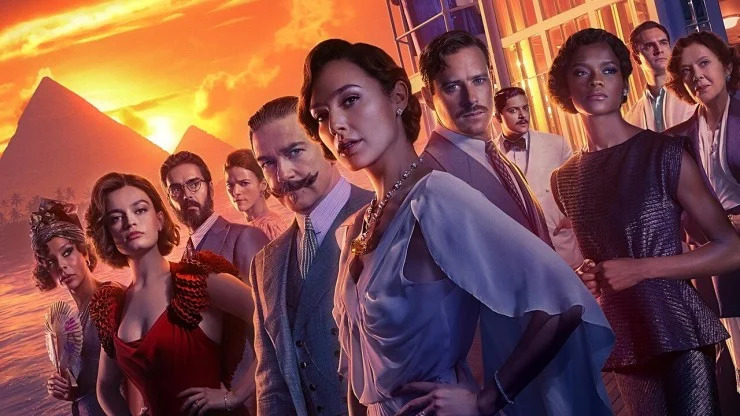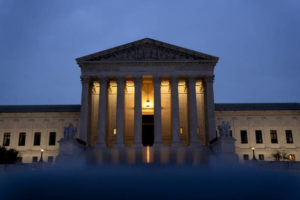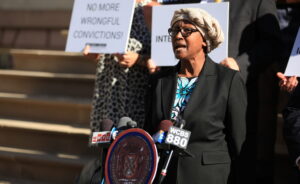
China and Hollywood
Los Angeles – Giuseppe Tornatore’s 1988 film, Cinema Paradiso, begins in a dried-out, 1940s Sicilian village with a war-weary population stricken with an indiscriminate appetite for movies. From John Wayne to Charlie Chaplin to Vivian Leigh, the old and the young cram every showing to the point of standing room.
One of the first scenes that Tornatore admits his viewers to is a special pre-screening that the theater sanctions for the village’s local priest. The tense Father sits alone in the auditorium, draped in his religious habit, hand poised cautiously on a small bell–as a cowboy would their revolver in an unfriendly barroom. The priest awaits–at times budged by the film’s emotional peaks–until the slightest sexual implication drifts onscreen. With every kiss, unleashed brazier strap, or overly-familiar hug, the priest’s arm flings heavenward and the handbell righteously sounds. This ringing signals the projectionist to mark the spot on the film reel, so he can later snip out the unbiblical matter before its public release.
Unfortunately, many forms of censorship–both recent and bygone–are typically far more bureaucratic, far more hidden, and far less endearing than the kind depicted in Cinema Paradiso.
However, this scene does well to explain how cinema exists in constant tension, as it attempts to be a realm where free expression and profitable mass appeal might somehow coexist. And in the face of this tension, America’s major studios have an unbending streak of sacrificing the former for the latter.
So whether it be the Catholic Church, the Woman’s Christian Temperance Union, the Chicago Police Department, or an organized gang of Twitter handles, there’s always been a humorless line of candidates looking to purify the moving image, those ready to clang their handbell whenever their sensibilities become bruised. And in the age of the blockbuster, where intensifying profit remains the unquestioned priority, America’s studios stand unashamed in dealing out censorship rights to those who appeal to their bottom line.
China’s Box Office Revolution
In 2020, China outpaced the United States as the world’s most lucrative box office. And in 2021, the country fueled 34% of global box office sales (the US had 22%)–amounting to over $7 billion. The reason for China’s increasing box office numbers is a mushrooming middle-class, which began in the cultural revolution of the 1980s, and has climbed ever since.
China now has over 700 million middle-class citizens. And what activity suggests a buzzing middle-class more than saddling up the kids and attending a well-advertised movie? Because of this, American film studios now depend on Chinese ticket sales to buoy profitability just as much as domestic box offices. For example, the 2019 super-hero blockbuster, Avengers: End Game, brought in over $700 million from North American markets. Conversely, China alone sold $629 million.
This being the case, it isn’t hard to imagine why studios feel validated with ripping out bits of their material, airbrushing others, or drowning projects face-first in the shallow end once they begin drawing heat.
Hollywood’s Historic Submission
LALA Land’s chicken-hearted behavior towards Chinese censorship has roots outstretched back to the mid-90s. One of the last honest efforts to kick the giant bear came in 1997 with Martin Scorcese’s film, Kundun. After facing rejection from Warner Brothers and Sony, Disney decided to pick up the film. Kundun was a known risk, as it chronicled the life of the 14th Dalai Lama, and his eventual exile from Tibet because of continued violence and threats from the People’s Republic of China under Chairman Mao Zedong.
The Chinese Communist Party went on to ban Disney from distributing any movie in Chinese markets. But, in 1998, former Disney CEO, Micheal Eisner, unpacked his olive twig. He issued a crouching apology, declaring, “In the future, we should prevent this sort of thing, which insults our friends, from happening.” And after negotiations–negotiations that included bringing in former Secretary of State, Henry Kissinger, as their PR stuntman–Disney entered back into the good favor of the CCP.
Kundun was one of the first high-profile clashes between the world’s two largest box offices. But it only took a few tussles before Hollywood decided to stop punching back.
A more modern example of the film industry’s slack posture toward the Chinese cash flow is a recent video featuring John Cena. In this video, the former WWE star issues a disturbing apology to Chinese citizens and officials for his suggestion (in a promotional interview for Fast & Furious 9) that Taiwan is a sovereign state.
The Future of Chinese Cinema Censorship
For most major studios, there’s no reason to believe that change will come from within. However, there are two possible avenues that could readjust the status quo.
The first comes in the recent proclamations by Disney executives to advance the representation of LGBTQ+ characters and themes. Because of Disney’s sacred commercial ties with China, there’s a large chance that their proclamations were made simply to fill headlines, and that loyalty to Chinese profits will, as they always have, rise above principle. But if they decide to move forward, and manage to avoid becoming the pillar of salt that Kundun turned them into, Disney is likely to be assailed with backlash from the CCP. Because, historically, China excises and bans movies and shows depicting homosexual behavior in a positive framework.
The second avenue would be from a political strongarming. As more information continues to surface on China’s heavy hand on American industry, politicians, from Elizabeth Warren to Ted Cruz, continue to thump the tub of legislative action harder and louder. Because of this, it’s possible that this political action would set into motion a reversal of the number of American movies allowed for distribution in China, or even ban the exchange outright.
Thumbnail Credits: Disney
Sources:
- Cinema Paradiso – Censoring the Kisses
- China Overtakes North America as the World’s Biggest Box Office
- Avengers at the Chinese Box Office
- China’s Middle Class in 5 Simple Questions
- History of Disney and China
- China’s grip on Hollywood Began with Disney’s Apology for Kundun
- Disney Hires Kissinger
- John Cena Apology Video
- Disney Commits to LGBTQ+ Representation
- China Bans TV Shows Depicting Homosexual Behavior
- Senators Revive Bill to Combat Censorship of Chinese Companies








